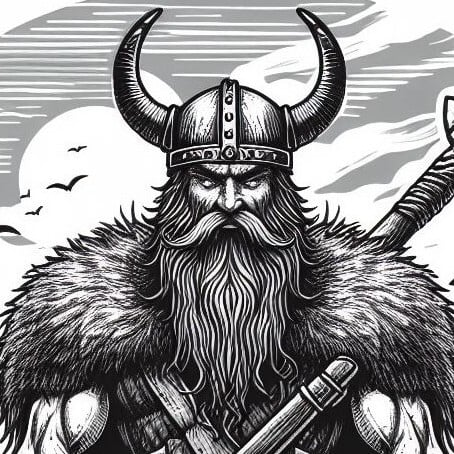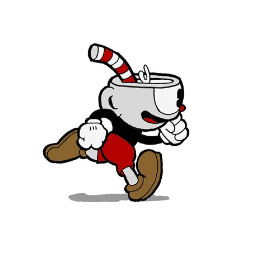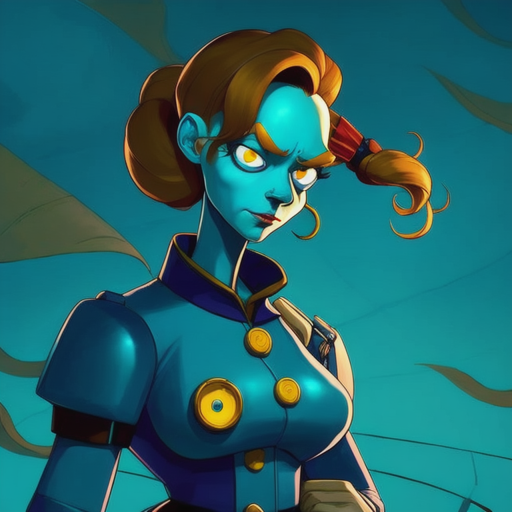Sequoia 😌
Well done
Education (´・ᴗ・ ` )
I don’t get it?
It has one of every vowel.
Ah I see.
Questionably?
deleted by creator
I hear this photo
Tsk is an onomatopoeia for disapproval
Hmm, pst, grr, mmm, all acceptable words in Scrabble https://scrabble.merriam.com/words-without-vowels
Scrabble’s acceptable words include non-English words and other BS. It’s about as far from a viable “word list” as you can get.
it’s just a bunch of approved letter sequences.
hell, there was Kiwi guy who won French Scrabble. Doesn’t speak or know any French, just memorised the book.
The guy who won the French Scrabble World Championships as a non-french speaker was not an American. His name is Nigel Richards and he’s a New Zealander who now calls Malaysia his home.
Entirely true that the Scrabble word list is just like a collection of valid trading cards, Nigel Richards just collected them all.
oops! edited. 👍
True enough, they include what they do for good game play, but according to various definitions of ‘word’ I looked up, onomatopoeia like hmm and shh are words. Yeah there are champions in African countries that don’t speak any English but win comps in English as well, it impresses me what memory can do.
Try, cry, pry, wry… <- Except that in these instances, Y is the vowel. Unless you’re playing Wheel of Fortune, where Ys are always counted as consonants and cost nothing to play.
Hmm, not sure if there are.
Rhythm technically
Rhythm’s not a vowelless word.
Rhythm is a dancer.
Welp, now that’s gonna be stuck in my head for at least a few days! At least it’s a great song.
Mwah ha ha! My work here is done! 😈
In rhythm, y functions as a vowel, as it makes a vowel sound.
Why?
same.
Hmm
K
Spelling-wise? Depends on what you mean by “vowel” and “word” – vowel isn’t really a term for letters/spelling, it only really makes sense in a phonemic/phonetic context. So, phonetically? Yes – i.e. words that only have a rhotic in the nucleus like “curd” which is just [kɹ̩d] in many rhotic dialects like most American English, “and” is often pronounced [n̩], “can” can be [kn̩]~[kŋ̍], “full” can be pronounced [fʟ̩] in some dialects (includinɡ mine). You can also include paralinguistic words like “shh” [ʃ̩].
I was going to post a less in depth reply along the same lines. Don’t know why you’re being downvoted.
I also don’t get why you’re being downvoted so much. Great answer.
In these examples such as curd and full, isn’t shwa the vowel? You can’t actually not have a vowel if you pronounce it.
/ɚ/ in American (including Canadian) English as in “nurse”, “curd”, “certain”, is usually labelled a “rhotacized vowel” in a phonemic context but it’s more precisely described as an approximant (due to the fact that it has some constriction around the palato-velar area, uvula, glottis, molars, and/or labio-dental area, depending on which variety you speak). And as I said, “full” is pronounced with no vowel in certain varieties.
Rhythm !!
Only by wheel of fortune rules.
What does this mean? What’s the rule?
Vowels are A, E, I, O, U and sometimes Y
So by the wheel of fortune rules, Rythm has a vowel, so this word does not fit the criteria of having no vowels, correct? That’s what makes me confused about the “only by wheel of fortune rules” comment, which seems to imply that “Y” is a consonant, but they’re not saying that.
By wheel of fortune rules, y is always a consonant. But by typical rules of English, y is a vowel in rhythm.
Oh wheel of fortune says y never acts as a vowel, but in English rules y is sometimes a vowel. My bad I misunderstood!
I got it now. Thanks!
y is a vowel here
deleted by creator
Those aren’t really English “words” though. There’s some old welsh in there which actually used W as a double U. And then some onomatopoeia, which while defined in some dictionaries, aren’t really words anymore than abbreviations like CIA or FCC are words.
According to the Cambridge English dictionary a word is simply “a single unit of language that has meaning and can be spoken or written”, so acronyms and onomatopoeia are words as much as any other apparently. Maybe they would consider an acronym multiple units of language bound together though so not itself a word.
“nth” is a “common” word though
Dry, crypt, dryly. It’s crypty a word…
Y is a vowel.
Ah, when i went to school it was only A.e.i.o.u that were the vowels.
Y is only sometimes a vowel: when it forms a vowel sound in a word.
In the case of “dry, crypt and dryly”, we could perhaps spell them “drie, cript and drielee” if we wish to see where those more familiar vowel sounds exist in those words.
Yeah, I’ve been reading up on it since the previous commentator drew my attention to it. Odd the bits of eduction you miss in life.
deleted by creator
deleted by creator
Fly, try and ply
A cwm (pronounced /ˈkuːm/) is used in English in a technical geographical or mountaineering context to mean a deep hollow in a mountainous area
Uhuh…
I’m about to cwm.
Pppffffttttt
Fun fact: In Dutch ‘vowels’ is the same word as is used for ‘streetstones’ (klinkers), so if you ask this question in Dutch, the answer is ‘dirtroad’. 😅
This is a very dutch reply, 🤣.
Ply?
But only if you reject the “sometimes y” clause.
rhythm.
I think there might be a sometimes w clause too. But any w words I can think of have a y anyway
W is a sometimes vowel in Welsh. There are a few Welsh words that are valid in Scrabble dictionaries, which is really the only metric that matters. There are also several onomatopoeias that are valid Scrabble words, like mmm or brr or tsktsks. That last one is the only 7 letter word with no vowels or sometimes vowels.
Maaan, everything is a vowel if you just Welsh it hard enough.
What?
Also by/dry/cry/pry etc. There are loads if you exclude y as a vowel.
deleted by creator
So whether hospital has vowels depends on what country you are in and if you have insurance? /J
deleted by creator
I was just learning about this today in response to this post! I had no idea that the definition of a vowel is based on what sound you actually make, rather than it having anything to do with what you write.
It’s kind of weird that it’s not taught that way in schools. Like, you’re just told a/e/I/o/u are the vowels and left to get on with it. Seems to me that could just be changed to “by the way it’s a/e/I/o/u/y/w, off you go”.
deleted by creator
I can only imagine they’re downvoting because they’ve had a better education than me, or paid more attention in class, or read the Wikipedia entry ten minutes before me.
deleted by creator
Exactly! I mean, some people (looking at you downvoters) learnt that during their education. But I (we?) didn’t, and this has been a really interesting find for me.
I genuinely love learning about linguistic weirdness, I just don’t know a lot about it. Or have many occasions to learn.
I was once told on one croud-knowledge site that in English letters don’t imply sounds and there is no such thing as “this letter sounds like that in this word”
Makes me wonder what they would’ve told me about this “sometimes Y” rule that is exactly based on letter-sound correspondence
IDK what they’re teaching these days, but back in my day (😭) it was
AEIOU and sometimes Y
Back in my day, we didn’t even have “and sometimes Y”.
I’m not sure if I’m older or younger than you so IDK if it’s trending better or worse. I’m late 30s, for reference. Also Canadian since that probably makes a difference.
I’m a little younger than you. I live in the US, but I was homeschooled in my early school years, so it’s possible the curriculum my mom used simply didn’t teach it. Or maybe I’ve simply forgotten they taught it.
Tsk tsk
Brr (for cold) And brrrrrrrrr (for money printer)
Myst
Y functions as a vowel in this instance
You can’t just identify as a vowel.
Y can and does. You have a problem with that? Go complain on the internet.
Ok boomer
Well in my native langugage “r” sometimes acts as a vovel, but it’s never considered one. We have words like: smrt, tvrd, prst, krt, vrt, brk…
Kyrgyz… styrn.
Tch!


















